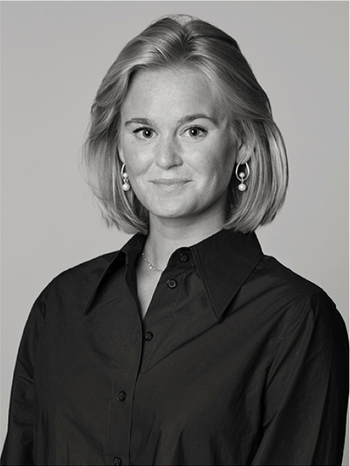Ingegerd Torhamn
Ingegerd Torhamn, Abstract composition.
Signed it. Panel 54 x 66 cm.
Good condition.
Muut tiedot
Ingegerd Torhamn was a prominent Swedish visual artist, sculptor and textile artist, who studied both at the Art Academy and abroad. She was one of the first and foremost Swedish concretists, after GAN and Otto G. Carlsund and also a contemporary of, among others, Erik Olson. She participated in the legendary Stockholm exhibition in 1930, which also became her big breakthrough. Torhamn created about ten carpets and the architect Gunnar Asplund was impressed by her bold and austere design language.
At school, Torhamn met Astri Bergman-Taube, who became her closest friend. They studied at the Academy of Arts' sculpture school under Carl Milles. With Agnes Cleve, Torhamn exhibited at the Konstnärshuset in Stockholm in 1932. She then had a large number of notable solo exhibitions for several decades.
Ingegerd Torhamn was attracted by the straight and geometric lines of functionalism. Her paintings often have seemingly simple and non-figurative motifs. In recent years, her concrete paintings, not least from the early years, have attracted increasing interest. Like Olle Bærtling and LG Nordström, she found a concrete style of her own that is immediately recognisable.
Ingegerd Torhamn played a critical role within the Swedish Modernist movement.
Ingegerd Torhamn was born in Stockholm in 1898. Daughter of painter Knut Sjöstrand, it became clear from an early age that she would aspire to a career in art. After training in sculpture at the Royal Swedish Academy of Fine Arts, her aesthetic gradually moved more towards ‘Funkis’, the Nordic equivalent of the international architectural style functionalism.
In the mid-1920s, Torhamn moved to Paris, where she became involved in the dynamic avant-garde artist community of the time. Upon her return to Sweden in 1927, Torhamn was hired as an aesthetic consultant for Swedish companies furnishing their properties in Berlin. At this point, she came into contact with the German Bauhaus movement, which, at the time, was relocating from Weimar to Dessau. The Constructivist spirit and practical approach of Bauhaus were increasingly seen as fundamental to modern design, and were key to the further development and maturation of Ingegerd Torhamn’s design language.
She participated in the legendary Stockholm exhibition in 1930, which cemented her reputation as a serious and well-respected designer. She created and displayed a dozen carpets and textile works throughout the exhibition in a bold modernist language. Her radical designs fitted perfectly with the aesthetic and general mission of the exhibition. With its slogan ‘Acceptera!’, or ‘Accept!’, the exhibition pleaded for an acceptance for the style of functionalism, thereby ushering in a new era of Modernism.
The designs by Ingegerd Torhamn can be considered a reflection of Malevich's abstract use of geometry; whist simultaneously referring to Purism launched by Amedée Ozenfant and Le Corbusier in their post-cubist designs of stylised figures, masks, musical instruments and vases that also included geometric fragments, lines and dots. Their subtle yet sophisticated colour scheme also seems to be reflected in Ingegerd Torhamn's carpets. The development of this design aesthetic was not singular, but can be observed in the work of several other important female designers who found their way to Paris during this period, including Eileen Gray, Evelyn Wyld and Eyre de Lanux, each of whom designed their own textiles.
Works by Ingegerd Torhamn are retained within the permanent collections of the National Museum, Stockholm, Modern Museum Stockholm, Röhsska Museet, and Stockholms Stadsmuseum, among others.







































